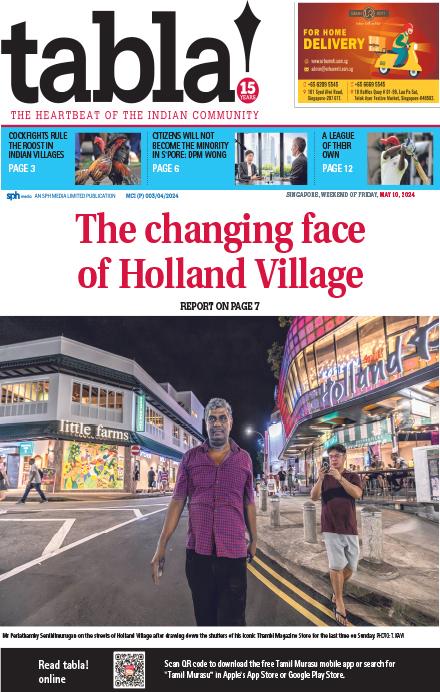Last week, Indian paediatrician Soumya Swaminathan (right) announced on Twitter that she would be leaving her post as chief scientist at the World Health Organisation (WHO) at the end of this month.
The 63-year-old plans to return to India to work on public health.
She joined WHO in 2017 and in March 2019 was named the agency's first chief scientist, a position created by Director-General Tedros Adhanom Ghebreyesus to make sure "WHO anticipates and stays on top of the latest scientific developments".
During the Covid-19 pandemic, Dr Swaminathan became one of the faces of the agency's global response, fielding reporters' questions at countless press conferences.
Her biggest regret, she told ScienceInsider, is not acknowledging early in the pandemic that SARS-CoV-2 could be spread by aerosols.
"We should have done it much earlier, based on the available evidence, and it is something that has cost the organisation," she said.
"You can argue that (the criticism of WHO) is unfair, because when it comes to mitigation, we did talk about all the methods, including ventilation and masking.
"But at the same time, we were not forcefully saying: 'This is an airborne virus.' I regret that we didn't do this much, much earlier."
Dr Swaminathan conceded that it went wrong due to a "mix of things".
"I was very new in the role of chief scientist and it had not been defined, what does the chief scientist do during a pandemic? I tried to do what I thought was best," she said.
"What happens at WHO is that the technical departments do the guidelines and at the science division, we just set the norms of how to do guidelines. So it was not my role and neither did anyone ask me to get involved at that stage.
"The existing paradigm is based around flu because most of our pandemic preparedness is for flu. And similarly, SARS-1 was very different as a pathogen, so we couldn't fully extrapolate from that. But in the beginning, we had to base it on some things.
"So, I think what I would say to the next chief scientist: If there's any situation where there's new evidence emerging, particularly from other disciplines, that's challenging our understanding, get involved early on."
Dr Swaminathan believes she accomplished quite a bit during her time at WHO, especially setting the science division on a path, giving it a lot of visibility globally and forging links with the big science communities.
"The other thing I am really proud of is the creation of the WHO mRNA vaccine technology hub, a facility based in Cape Town that aims to provide Africa with messenger RNA vaccines," she said.
"Moderna and BioNTech-Pfizer refused to share any technical know-how or help us in any way, but the South African scientists were still able to create a vaccine."
She said she was leaving WHO because "after five years of working at the global level, I feel an urge to go back and work at the national level".
"As India and many other countries have made health a priority, I think there is a chance to really transform the way we approach health, with more focus on a systems approach, on prevention and health promotion, attention to the determinants of health.
"I'll probably be based in Chennai with a research foundation. What else I'll do, I don't know at the moment."
Indo-Asian News Service



